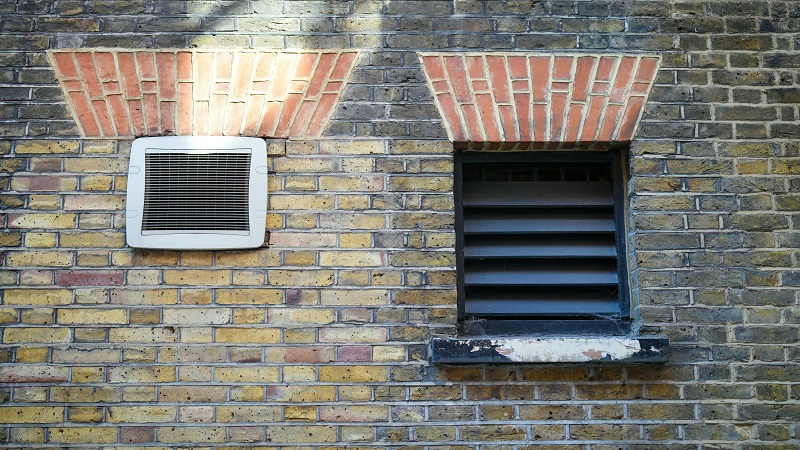Indoor air quality plays a crucial role in maintaining a healthy living environment. Many homeowners overlook the fact that the air circulating within their homes can contain unseen contaminants such as mold spores, pollen, and dust mites. These allergens not only compromise comfort but also contribute to respiratory problems and other health issues.
The effectiveness of an air system lies not just in its ability to cool or heat a home but also in how well it manages ventilation, humidity, and cleanliness.
In Forsyth, GA, where humidity levels can fluctuate, understanding how air systems contribute to preventing mold and allergens becomes particularly important for maintaining a safe and comfortable indoor environment.
Understanding the Role of Ducting in Air Quality
One of the most significant components of any air system is its ducting network. Ducts distribute conditioned air throughout a building, ensuring even airflow and consistent temperatures. However, when ducts are not properly sealed, cleaned, or maintained, they can become breeding grounds for mold and allergens.
Moisture accumulation within ducts provides the perfect environment for mold spores to grow and spread through the air system. Over time, this can lead to widespread contamination and health problems for occupants.
This is why professional ductwork services in Forsyth, GA, are essential for maintaining a clean and efficient air system. Proper duct cleaning and sealing help eliminate built-up dust, debris, and microbial growth that can otherwise circulate through indoor spaces. Well-maintained ducts ensure that clean, filtered air flows freely and that humidity levels remain balanced. This preventive measure supports the overall performance of air systems, reducing the risk of mold formation and minimizing allergen exposure.
Humidity Control and Mold Prevention
Mold thrives in damp and humid environments, which is why managing indoor humidity is a key part of preventing its growth. Air systems play an active role in maintaining proper humidity levels by removing excess moisture from the air. When humidity levels rise beyond a certain threshold, condensation can form on walls, ceilings, and inside air ducts. This trapped moisture becomes an ideal habitat for mold colonies to develop.
Modern HVAC systems often include dehumidification features that help control moisture levels automatically. Regular maintenance ensures that these components continue to operate efficiently. Replacing filters, cleaning coils, and inspecting condensate drains all contribute to keeping humidity under control.
Filtration and Allergen Reduction
Air filters are one of the first lines of defense against airborne allergens. They capture particles like pollen, dust, and pet dander before they can circulate through the home. However, filters can only function effectively if they are cleaned or replaced at the right intervals. A clogged or neglected filter restricts airflow, forcing the system to work harder and allowing contaminants to bypass filtration altogether.
Upgrading to higher-efficiency filters can significantly reduce the presence of allergens in the air. Some filters are designed to trap microscopic particles, including mold spores, while still allowing proper airflow. Ensuring that the filter is compatible with the system’s capacity is equally important.
Ventilation and Air Circulation
Good ventilation is critical for maintaining healthy indoor air. Without adequate air exchange, pollutants and allergens can build up, making the environment feel stale and uncomfortable. Air systems that incorporate proper ventilation bring in fresh air from outside while expelling indoor contaminants. This exchange helps dilute allergens and maintain balanced humidity levels.
In addition to mechanical ventilation, natural airflow through windows and vents can support indoor air health when weather conditions allow. However, air systems offer more controlled and consistent results, particularly in climates where outdoor air may carry its own set of allergens.
The Importance of Regular System Maintenance
Even the most advanced air system requires consistent upkeep to function effectively. Over time, dust, dirt, and microbial growth can accumulate within the system’s components. This buildup not only affects performance but can also compromise air quality. Routine maintenance helps identify issues such as leaks, worn-out filters, or malfunctioning components before they escalate into costly problems.
Technicians typically check for blockages, clean coils, inspect ducts, and ensure that humidity controls are operating properly. Such preventative care keeps the system running smoothly and reduces the likelihood of mold or allergen issues.
Airflow Balance and Indoor Health
Balanced airflow is essential for both comfort and air quality. If certain rooms receive too much or too little conditioned air, it can lead to temperature inconsistencies and stagnant zones where allergens and moisture can accumulate. Proper airflow balance ensures that air is distributed evenly, preventing the conditions that foster mold growth and allergen buildup.
During maintenance visits, professionals can measure and adjust the airflow throughout the home. They may also recommend improvements such as better sealing, duct insulation, or the addition of return vents.
How Air Systems Contribute to a Healthier Home
Beyond comfort, a well-maintained air system supports overall wellness. Mold spores and allergens can trigger respiratory problems, allergies, and even chronic conditions if left unchecked. By keeping air systems clean and efficient, homeowners can significantly reduce the risk of these health issues.
Air systems that are properly maintained also help manage temperature and humidity, both of which influence how comfortable and healthy a space feels. With clean filters, sealed ducts, and balanced ventilation, the air remains fresh, odor-free, and free from harmful microorganisms.
Creating a Long-Term Air Quality Strategy
Preventing mold and allergens is not a one-time effort but an ongoing process. Regular maintenance schedules, professional inspections, and mindful daily habits all play a part in sustaining good indoor air quality. Homeowners can support their air systems by keeping vents unobstructed, avoiding excessive moisture indoors, and monitoring humidity levels with simple tools like hygrometers.
Scheduling professional servicing at least once or twice a year helps detect early signs of mold or allergen buildup before they become serious problems. In regions with humid climates, additional care may be required during certain seasons to prevent moisture from overwhelming the system.
Healthy indoor air begins with a reliable, well-maintained air system. Through regular maintenance, balanced airflow, effective filtration, and proper humidity control, homeowners can create a clean and comfortable environment that minimizes the risks of mold and allergens.

